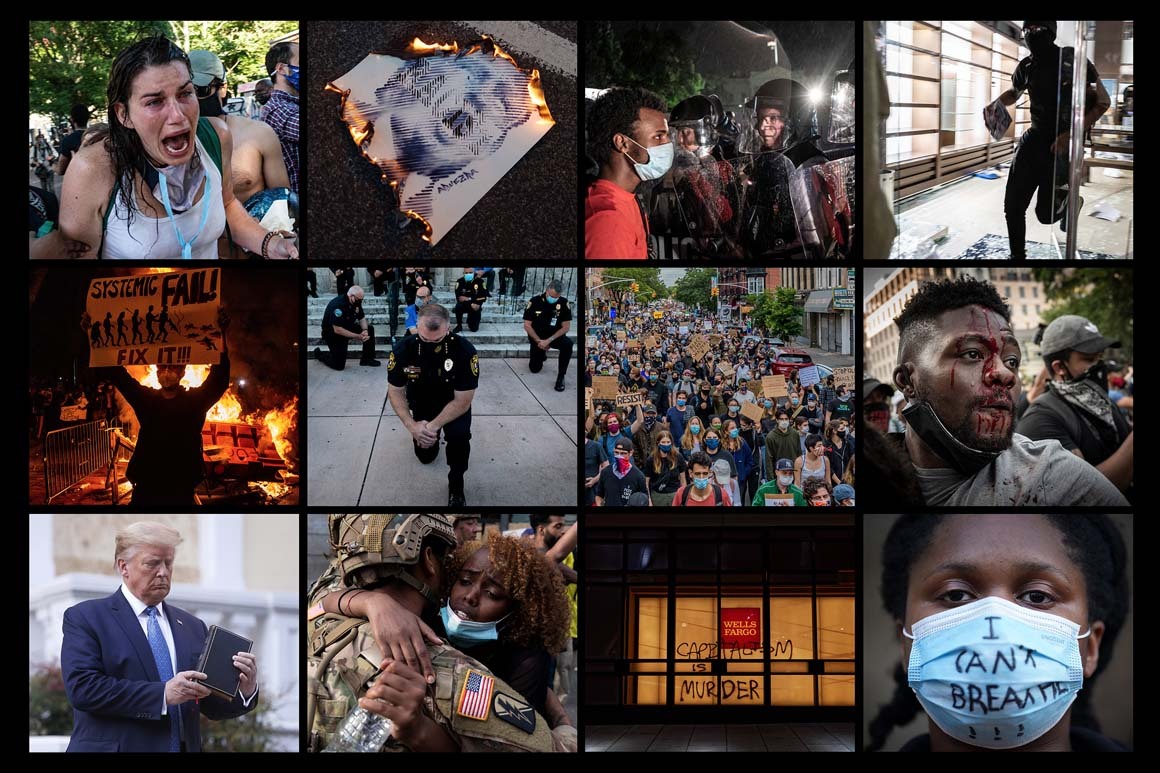
Lee Drutman is a senior fellow in the Political Reform program at New America and author of Breaking the Two-Party Doom Loop: The Case for Multiparty Democracy in America.
Many have drawn comparisons between the events of 2020 and the unrest and tumult of 1968, pointing out similarities and differences in the events themselves and the personalities involved. But most important is the fact that the structures of American political conflict and media are fundamentally different today, in ways that make reconciliation much more difficult.
In 1968, civil rights were not a partisan issue. Both parties contained a mix of social liberals and social conservatives, and landmark civil rights legislation to end housing discrimination in 1968 was bipartisan (with a higher percentage of Republicans than Democrats supporting it, actually). Whatever divisions existed in society then, partisan conflict didn’t echo them. Rather, parties provided a forum for their resolution. Today, questions of racial justice divide the parties, creating a hyperpartisan conflict that echoes and reinforces the conflict in the streets: casting police vs. protesters as a red vs. blue issue, and amplifying our hyperpartisan politics.
In 1968, almost everybody also saw the same nightly news on one of just three national networks and/or read the same local newspaper. Whether they agreed or disagreed with the protests, everybody at least was working with the same set of facts. Today, in an age of media fracture, Democrats and Republicans see almost entirely different news, with different images and different emphases, amplifying and exacerbating the partisan conflict. Without a shared set of images and a shared set of facts, it’s very difficult to come to the common understanding necessary for an agreement.
Taken together, these two differences suggest no easy resolution—just more zero-sum escalation that threatens the shared sense of fairness on which democracy depends.
Christopher S. Parker is professor of political science at the University of Washington and author of the forthcoming Great White Hope: Donald Trump, Race, and the Crisis of American Democracy, with Matthew A. Barreto.
This time could be different, but the jury—at least for me—remains out. It’s easy for one to believe that the sum of recent events will lead to more enduring racial progress. Race-based health disparities rendered visible by the current pandemic. Check. Blue on black violence. Check. The election of a racist president. Check. By virtue of the sheer weight of these combined events, how could one possibly gainsay the proposition that the current moment will result in more permanent racial progress? Here’s how. Race-based health disparities have always existed; the pandemic merely reminds us of this. Blue on black violence is as old as the republic; this isn’t even the first time police brutality catalyzed nationwide unrest. The latter half of the 1960s attests to this. And, of course, racist presidents have long existed, too (does Woodrow Wilson ring a bell?).
Nonetheless, I think it’s possible that the present conflagration might represent an inflection point. The potential to make this moment different is, I submit, the so-called white moderate, a term deployed by Martin Luther King Jr. in the Letter from Birmingham Jail in 1963. Moderate white people assumed a perch in no man’s land during the civil rights movement; they weren’t practicing white supremacists, but they weren’t racial progressives, either. Basically, they refused to take a side. For this reason, King suggested that if they weren’t part of the solution, they were part of the problem. In the present context, moderate white people are those who recognize that racism is wrong but choose to do nothing about it, while ultimately benefitting from white supremacy. However, recent evidence suggests that moderate whites might be ready to break with President Trump’s blatant racism. Not only Democrats, but a majority of political independents in the United States say they are repulsed by Trump’s racism. This represents a shift; 46 percent of independents supported Trump in 2016.
Only time will tell whether the president will continue to alienate white folks in the middle. If he does, Americans finally might move toward an anti-racist majority, hopefully for the foreseeable future.
Mark Holden is former senior vice president and general counsel of Koch Industries.
As a committed and passionate criminal justice reform advocate for decades, I see this as a critical moment, precisely because we have made so much progress over the past 15 years. Changes in the states and at the federal level have made our communities safer, our systems more just and outcomes more focused on second chances for those who have transgressed. Instead of the failed tough-on-crime policies of the 1980s and 1990s, which were based on politics and race-baiting, many parts of the country have embraced smart-on-crime measures focused on data and evidence that have led to a system emphasizing rehabilitation, restoration and redemption.
Sadly, a year and a half after President Trump signed the First Step Act into law, we are experiencing the worst riots since 1968, sparked by a Minneapolis police officer killing George Floyd in cold blood and in broad daylight. To their credit, some are responding by focusing on police reforms that work for both communities and law enforcement. I welcome such reforms, but no law or proclamation will completely solve the deeper issues of racial inequality, racism and a lack of equal opportunities in our society. Until we address those underlying issues, caused by a two-tiered society and systems that don’t work for most Americans, I fear there will always be more senseless tragedies, such as the shooting death of David McAtee, an African American man, earlier this week in Louisville. As individuals, we must look within our own hearts for change. But we also must act on what is in our hearts.
Source: politico.com
See more here: news365.stream






